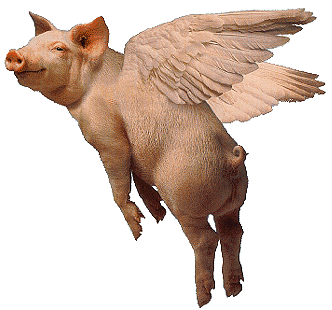You have arrived in Chicago from your home country and are feeling excited to try out the English you had been practicing in school. Things are going well: you had a delicious hot dog and even made the store owner laugh, you took pictures by the lake shore, and now you’re catching the Brown line downtown to see DePaul’s campus for the first time. Arriving in the Loop and coming down the stairs from the El a man rushes up to you dressed in a designer coat covered in dirt stains and red sweat pants. He smells like the train you were just on.
“You gotta help me out,” he says. “My wife flew the coop with my wallet and I have to get back out to the suburbs.”
Coop?….
o_O The man seems to be distressed over something, but you have no clue why he’s talking about chickens.
“Please,” he says, “I’m really in a jam!”
Your eyes widen as you picture this man bathing in a huge pool of strawberry jam and at this point you think he must be insane, so you say “sorry” and hurry towards Millennium Park.
———
Learning a foreign language is challenging in many ways, but perhaps the most challenging aspect is the use of idioms. Unlike grammar and pronunciation, there are no universal rules to idioms; each has their own origin and imagery, which often seem nonsensical or bizarre. For example, in the scene above we have the idiom “flew the coup,” which means “to leave somewhere.” It’s true that without knowing this idiom or others in advance, you’re left missing out on parts of a conversation. But, it’s also true that if you consider a chicken rushing away from its tiny house and then imagine a human running out of its apartment in a similar fashion, bawking (the noise chickens make when they are distressed) at strangers on the sidewalk, the idiom makes sense, and it’s entertaining.
This is what we shared at Conversation and Culture this past Friday. With students representing for China, Mexico, Saudi Arabia, India, Taiwan, Korea and Brazil we had a whole host of idioms to talk about. In our group we learned that in Portuguese when you want to say that something is highly unlikely or won’t happen, you say “when the cow coughs.” Similarly, in English we say “when pigs fly.” Although the imagery shifts between cultures and languages, we often use idioms to express the same ideas and life experiences. We say “stand out from the crowd” to say someone is noticeable because of their difference to those around them. In Chinese you would say, “鹤立鸡.” In English: “crane stands among a flock of chickens.” Personally I prefer the chickens, but what we see is that idioms point out how similar the human experience is and allow us to appreciate the differences in each culture’s expression. That’s really what we are going for here at the CMWR. Conversation and Culture takes place every Friday in the Loop from 1-2.
Discover more from UCWbLing
Subscribe to get the latest posts sent to your email.


